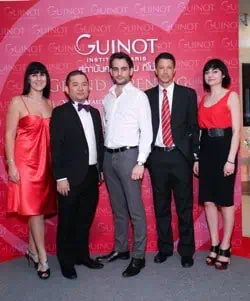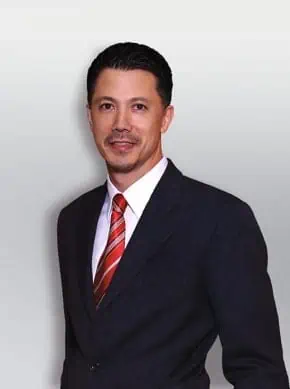The director of a Public Relations company takes overall responsibility for the successful development of the PR agency, its media relationships and its partnerships with customers.
Public relations is the control and management of the information chain between a company (or NGO – Non Governmental Organisation) and the public. The intermediary in this chain is often the media, which is composed of television, newspapers, magazines, public information services, and more recently, the network of global tweeters and bloggers known as the blogosphere. The PR agency exists to amplify the client company’s own message; in an example of a car maker who has made significant investments in raising the quality of its product, the PR firm might arrange an interview with a business magazine to talk about steps they have taken, and put out a press release to car magazines explaining their new direction in an attempt to increase sales. The public often perceive PR specialists as “spin doctors” – hiding the truth behind a wall of deceit in disaster situations. In reality, a tiny amount of time is spent on disaster mitigation, as often the best approach in times of negative press is to say nothing at all.
The PR company director takes initiative and responsibility for overall agency direction and strategy, enabling its staff (composed of public relations officers, administrative staff and media liaison experts) to enhance their clients’ relationship with key media and effectively use the information chain to amplify key messages based on their overall strategy.
Salary
Salary ranges vary greatly depending on the size of the organisation and territory in which it operates. The agency derives its income from monthly payments against the PR contract by its clients. In Asia and developing markets, this is often around £2400 per month, with that cost rising significantly in the UK, depending on the track record of the agency. A small ten-person PR organisation could typically have ten clients, so it would generate £24,000 per month on average. From this turnover, the agency would need to pay rent and facility expenses, tax and staff wages, so therefore much of the work of the director is a balancing act of profitability.
Responsibilities
- Understand the client’s key communication objectives
- Cultivate relationships with key media
- Identify selected media channels for best conducting of client communication
- Identify opportunities for organising events in collaboration with business partners
- Manage client PR schedules in line with their own internal marketing plans
- Ensure staff are delivering effective KPI (Key Performance Indicator) reporting
- Take overall responsibility for business strategy, marketing and finance
- Take overall responsibility for HR issues and find new PR talent to join as staff
Qualifications

Most agencies require that new recruits possess a formal degree in a relevant field, which could be marketing, communications, media, journalism, business management or business development; it is possible to market oneself to the prospective agency with another degree depending on its relevance. For example, a PR firm that deals largely with hotel clients would find a hotel management degree enticing. It is a broad industry with a wealth of differing client sectors. Employers are looking for strategic thinkers and clear communicators with an empathy towards client management.
Skills
- Be able to stay abreast of media movements within the territory
- Understand how to build and develop relationships for the good of both agency and client
- Be proactive in monitoring competitor businesses and suggest strategic responses to their initiatives
- Be able to impose promptly disaster mitigation strategies when the media are ready to publish an unflattering feature
- Maintain an active presence on the local PR, social, networking, launch and party scenes, as it enables business development and media cultivation
- Have a general grasp of business management, covering everything from contracts, tax, financing and advertising
Working Conditions
Much of the work is office based, with regular visits to client offices too. Also, the PR director (or one of his or her team members) will need to make regular “media visits” –taking gifts to strategic media partners and briefing them on client movements. As some of the role involves event management and disaster mitigation, there are very challenging elements to the job, in terms of managing expectations and developing real-time strategies to overcome adversity. The other significant challenge lies in the fact that client contracts typically only run for one year, so a customer is only a customer for 12 months should they choose not to renew. Each lost client costs tens of thousands of pounds a year to the agency in lost revenue.
Experience

Most PR company directors graduate from senior positions with PR or advertising companies, although some make the transition from other disciplines. Setting up one’s own agency carries considerable risk, as clients usually sign up to a one year deal. This means that clients can turn over each year, so the director’s experience in managing client relations, making effective use of their media networks and attracting new clients is essential for long term success.
Career Progression
Although the role of PR company director is the top tier management position within the company, those PR directors who are working within the top five most recognised agencies in their country can position themselves as “thought leaders.” This will entail speaking at seminars and forums, offering interviews to magazines and making regular public appearances at events for the benefit of either clients or the director’s own agency.
Employers
The UK’s most recognised PR firms include Midas, Publicasity, Ogilvy and Tangerine; much of the industry is London-based, simply because it is the centre of international events and can connect PR clients with the largest audience.
Image

Also known as…
- PR company owner
- Public relations company director
Related Jobs
- Marketing manager
- Marketing director
- Sales & marketing director
What’s it really like?
Joseph Henry is the director and co-founder of Vivaldi Public Relations, one of Thailand’s most prominent PR agencies and one of the fastest growing communications agencies in South-east Asia
What made you decide or choose to get into this sort of career?
Around 1997, I was at a crossroads in my life. I worked as both a marketing manager and then as director in two very different sectors: jewellery and IT. After the Dot Com crash, I began to examine which potential jobs would become most worthwhile, and I very much liked PR and advertising. I met the CEO of a renowned advertising agency who thought I had leadership potential, and I saw around me talented people in advertising in every work discipline, from creative roles to accounts – very brilliant people. I discovered that I had a passion and talent for working in communications, and at that time, the PR and communications sector in Asia was at a younger stage of development. I figured that if I got in early with PR, then it would surely grow. This proved to be correct: from 2000 – 2004, I went from client service director to managing director, then the owner of my own PR company, Vivaldi Public Relations, which is now one of Thailand’s most prominent PR agencies. It is still growing more quickly than comparable advertising companies; clients now largely understand that a capable PR agency can deliver better value than straightforward advertising expenditure.
What is the most common type of problem/call-out/enquiry to which you must attend?
As the company owner, the big challenge is finding talent, recruiting and retention – finding good people who are bi-lingual (in English and Thai). I also need to consider how to make the job interesting and satisfying for the staff as the industry has many opportunities and it is straightforward for them to move to another firm. I try and offer a great company with growth opportunities for our team. We enjoy decent retention; our company has been in business for eight years, and some of our staff have been with us for six. One team member left us to try roles in three other companies before coming back! She missed it a lot. The other main issue is in managing and exceeding expectations for clients – ‘relationship’ is the key. This has a lot to do with achieving great results and understanding their experience as CEOs in their own company. One of our big strengths is in fast turnaround – really being able to exceed expectations with press releases, delivering media strategies, etcetera.
What do you like most about the job?
It is fun and satisfying working with the media. Good relationships let you receive tremendous support for activities and initiatives but you must also understand they have a job to do; understand their pressures and objectives. It’s a great business which you appreciate when you receive publicity for clients, and that is very enjoyable. We have a wide variety of interesting clients.
What do you like least about the job?
The challenges revolve around serious deadlines which must be met every day. Clients are under pressure to deliver media value in an appropriate time frame; the trick is balancing their needs with those of your media partners. You’re constantly walking a tightrope in making the whole thing work. Also, looking for good talent is expensive and time consuming. In many cases, this makes our job all the more challenging.
What about academic requirements? Any formal demands, eg A Levels?
I would say the minimum is a bachelor degree – this is what we look for in all staff we consider recruiting, so I guess it would be appropriate that the company director or owner would be similarly qualified at least. In Thailand, that would be a degree in communications or marketing. A journalism degree is also acceptable because as PR consultants we are writing and working within the media. This degree shows an understanding of the media landscape and also of writing capability. A marketing degree is more appropriate to the company owner. People can come from entirely different backgrounds as they decide to start their own PR company for different reasons.
What advice do you have for someone who is looking to get into this as a career?
Well, the best advice would be to do an internship (we are always looking for interns!). In many cases, our interns have gone on to enjoy successful careers. At least the last three! We’re very proud of our Vivaldi alumni! You really have to be flexible not rigid, adaptable to different situations; clients’ wishes change based on feedback from their approval committee, whatever that may be. We make changes and try to be very patient – and all this with a good attitude. That’s not always easy. I strongly recommend people take good care of their health, so make sure you exercise and have a balanced life. This enables you to make decisions with a clear mind. I am heavy on fitness and high pressure work, charity and meditation. That covers the spiritual and emotional elements, and solidifies my relationships outside work.
What are the most important qualities an applicant must and should possess?
People skills, positive attitude, empathy, analytical mind and understanding of needs; and by people skills, I mean it is about more than being friendly – you need high energy, the ability to handle difficult clients, and the basics of good writing and verbal communication.
Any closing questions, comments or additional advice?
I’ve said a lot about the technical skills, but in the long run it’s about relationships and reputation. If you want to have a successful PR company, then you need to have integrity, honesty and a good long term strategy for managing relationships and trust. Your business will prosper over the years, as it takes time to build trust and respect in the business community – then you can go home and sleep peacefully.









